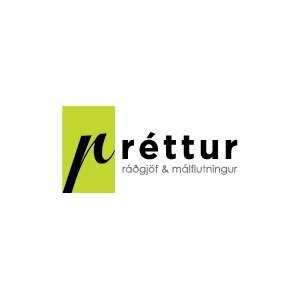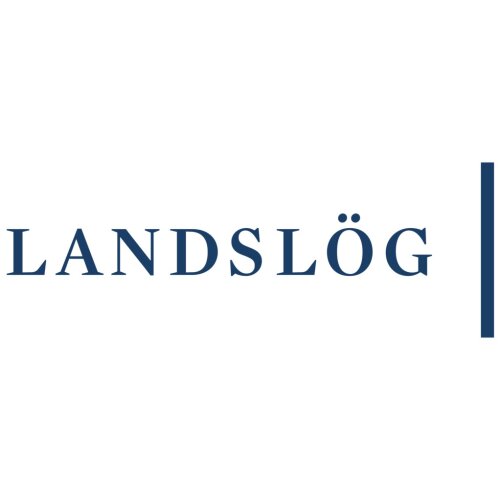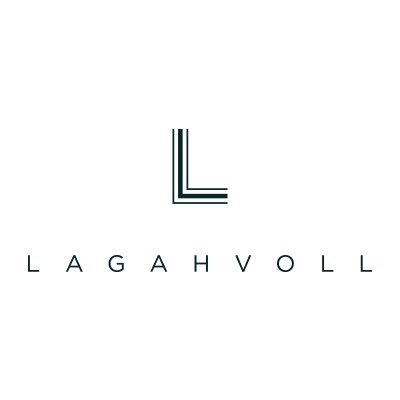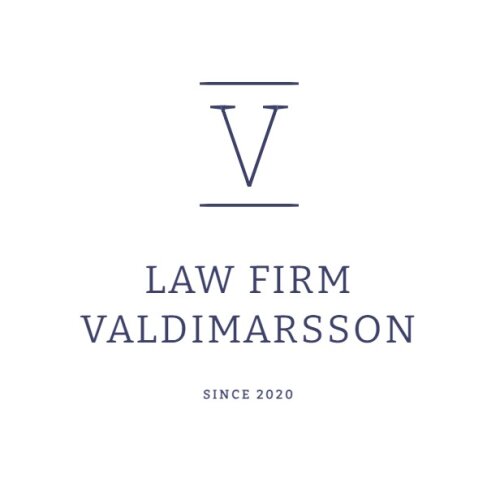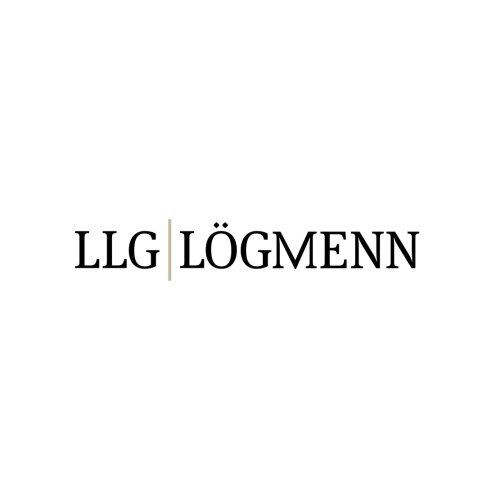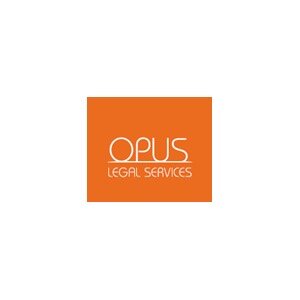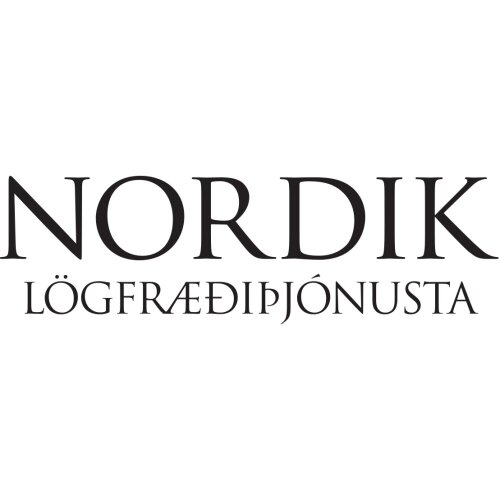Best FDA Law Lawyers in Iceland
Share your needs with us, get contacted by law firms.
Free. Takes 2 min.
Or refine your search by selecting a city:
List of the best lawyers in Iceland
About FDA Law in Iceland
FDA Law in Iceland refers to the regulations and legal standards that govern the safety, approval, labeling, marketing, and distribution of food, drugs, medical devices, and cosmetics. In Iceland, the framework is influenced by the European Economic Area (EEA) agreement, which means most rules align with European Union standards. The Icelandic Medicines Agency (Lyfjastofnun) and the Icelandic Food and Veterinary Authority (Matvælastofnun, MAST) are the principal regulatory bodies overseeing these sectors. FDA Law ensures that all consumable products meet health and safety requirements before reaching consumers, while also handling enforcement matters such as recalls and penalties for non-compliance.
Why You May Need a Lawyer
You might need a lawyer specializing in FDA Law in several scenarios, including:
- If you are a manufacturer or distributor seeking approval to market a new food product, dietary supplement, or medical device in Iceland
- If you are facing enforcement actions such as recalls, fines, or product seizures by Icelandic regulatory agencies
- If you need guidance on compliance with Icelandic or EU food and drug standards
- If you are involved in a dispute, such as mislabeled products or consumer safety complaints
- If your business faces allegations about false or misleading advertising in the health and food sectors
- If you seek to challenge a regulatory decision or navigate the appeals process
- If you wish to export or import regulated products and need advice on legal requirements and customs procedures
Legal professionals with expertise in FDA Law can provide invaluable guidance, help you minimize risks, and protect your interests in these complex regulatory environments.
Local Laws Overview
The main legal framework for FDA Law in Iceland comes from several sources:
- EEA and EU regulations: As an EEA member, Iceland follows many European Union directives and regulations related to food safety, pharmaceuticals, and medical devices.
- Icelandic Medicines Act: Governs the authorization, sale, and monitoring of medicines in Iceland, and aligns closely with EU pharmaceutical law.
- Foodstuffs Act: Regulates food safety, labeling, additives, packaging, and hygiene in line with EU standards. It outlines the responsibilities of producers and distributors.
- Enforcement Agencies: The Icelandic Medicines Agency oversees pharmaceutical products and medical devices, while the Icelandic Food and Veterinary Authority deals with food safety, animal health, and plant health. These agencies inspect products, issue permits, and enforce compliance with law.
- Consumer Protection Law: Protects against deceptive or unsafe products and ensures accurate product labeling.
- Recall and Penalty Procedures: Set procedures for addressing non-compliance, including recalls, bans, fines, and possible criminal sanctions for severe violations.
Businesses or individuals dealing in regulated products must be aware of these overlapping legal frameworks to operate lawfully in Iceland. Import and export rules can also be complex, making legal guidance particularly helpful.
Frequently Asked Questions
What agencies regulate food and drugs in Iceland?
The Icelandic Medicines Agency (Lyfjastofnun) regulates pharmaceuticals and medical devices, while the Icelandic Food and Veterinary Authority (Matvælastofnun, MAST) oversees food safety, animal health, and related issues.
Does Iceland follow EU rules on food and drug safety?
Yes, as part of the EEA, Iceland adopts most EU regulations and directives related to food, drugs, and medical devices. This ensures standards are in harmony with broader European requirements.
Do I need pre-market approval for new food or medicine in Iceland?
Yes, new medicines and certain categories of food and dietary supplements require pre-market approval. Pharmaceutical approval is managed by the Icelandic Medicines Agency, while foods are generally handled by MAST.
How are recalls handled in Iceland?
If a dangerous or non-compliant product is found, the relevant agency can order a recall. Companies must comply promptly, inform affected consumers, and take steps to prevent recurrence.
Are there specific labeling requirements for food and drugs?
Yes, Icelandic and EU regulations require detailed ingredient lists, nutritional information, allergy statements, and accurate claims on all food labeling. Medicines must also follow strict labeling and patient information requirements.
What are the penalties for violating FDA regulations?
Penalties can include fines, product seizures, mandatory recalls, suspension of business operations, and, in severe cases, criminal charges.
Can I market a dietary supplement in Iceland without approval?
Depending on the product’s ingredients and claims, some dietary supplements require assessment or registration before sale. It is best to check with MAST or the Icelandic Medicines Agency before proceeding.
Can I advertise medical or food products in Iceland?
Advertising is regulated and must not be misleading or make unsubstantiated health claims. Medicines have particular restrictions, especially regarding advertising to the public.
What if my imported product is stopped at customs?
Customs authorities work closely with regulatory agencies to inspect imported products for compliance. Non-compliant products may be detained or refused entry. Legal advice can help resolve such issues.
How can a lawyer help me in dealing with FDA Law issues in Iceland?
A lawyer can help you understand the regulatory requirements, assist with obtaining necessary permits, defend against enforcement actions, draft appropriate documentation, and represent you in disputes or appeals.
Additional Resources
Several governmental bodies and organizations can provide guidance on FDA Law in Iceland:
- The Icelandic Medicines Agency (Lyfjastofnun): Offers information on pharmaceutical approvals, medical devices, and related regulations.
- The Icelandic Food and Veterinary Authority (Matvælastofnun, MAST): Provides guidance on food safety, animal health, and food import-export requirements.
- The Environment Agency of Iceland: Offers broader support regarding chemical and environmental safety in consumable products.
- Directorate of Health: Supplies public health guidance and regulations influencing food and drug law.
- The Consumers Association of Iceland: Supports consumer protection, product safety education, and handling complaints.
- European Medicines Agency and European Food Safety Authority: These offer resources relevant to Iceland due to EEA links.
Next Steps
If you are facing an issue or have a question about FDA Law in Iceland, consider the following steps:
- Clearly identify your legal issue or regulatory question, and gather any relevant documents, such as product information, correspondence from authorities, or business paperwork.
- Contact the appropriate regulatory agency for initial guidance. This can often resolve simple compliance questions.
- If your issue is complex or you are subject to enforcement actions, seek professional legal advice from a lawyer with FDA Law experience in Iceland.
- Look for specialist law firms or attorneys who have a background in food and drug law, international trade, or administrative law.
- Prepare for your legal consultation by outlining your goals and bringing all available documentation to support your case.
- Follow your lawyer’s advice on compliance, dispute resolution, or appeals, and maintain clear records of all communications with the authorities.
Seeking early legal intervention can help avoid costly penalties, keep your products on the market, and ensure your business maintains a strong reputation with Icelandic consumers and regulators.
Lawzana helps you find the best lawyers and law firms in Iceland through a curated and pre-screened list of qualified legal professionals. Our platform offers rankings and detailed profiles of attorneys and law firms, allowing you to compare based on practice areas, including FDA Law, experience, and client feedback.
Each profile includes a description of the firm's areas of practice, client reviews, team members and partners, year of establishment, spoken languages, office locations, contact information, social media presence, and any published articles or resources. Most firms on our platform speak English and are experienced in both local and international legal matters.
Get a quote from top-rated law firms in Iceland — quickly, securely, and without unnecessary hassle.
Disclaimer:
The information provided on this page is for general informational purposes only and does not constitute legal advice. While we strive to ensure the accuracy and relevance of the content, legal information may change over time, and interpretations of the law can vary. You should always consult with a qualified legal professional for advice specific to your situation.
We disclaim all liability for actions taken or not taken based on the content of this page. If you believe any information is incorrect or outdated, please contact us, and we will review and update it where appropriate.
Browse fda law law firms by city in Iceland
Refine your search by selecting a city.





